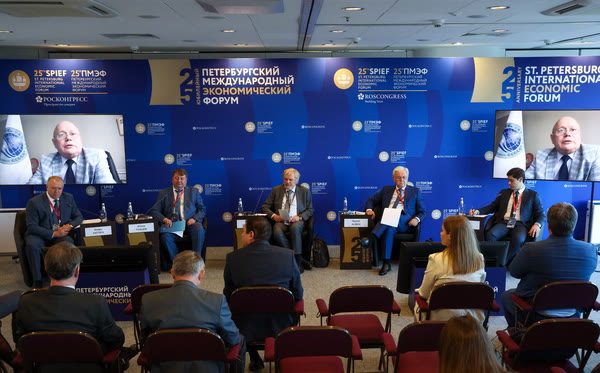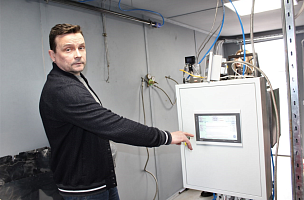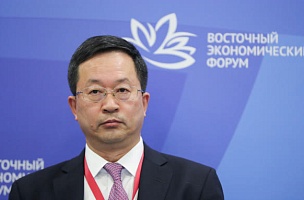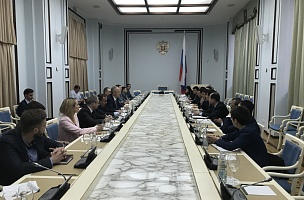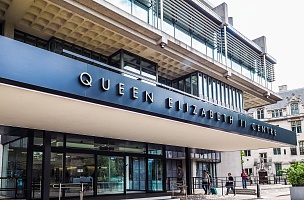Key findings
Shanghai Cooperation Organization set to expand its spheres of influence
“The SCO was initially created to fight terrorism and drug trafficking. [The Organization] focused on security in border nations. Along the way, multilateral cooperation began to develop, and economic cooperation started to come to the fore. And today, I believe that is the dominant idea of the Shanghai Cooperation Organization. It is growing, and has many – at least six – countries applying to join. For now, they are observers,” Sergey Katyrin, President of the Chamber of Commerce and Industry of the Russian Federation.
“The SCO has won global recognition as a universal trans-regional association whose activities cover every sphere, including politics, security, economics and humanitarian ties. The principles underpinning the SCO are in great demand the world over,” Grigory Logvinov, Deputy Secretary General of Shanghai Cooperation Organization.
Trade and economic cooperation becoming a priority for SCO member states
“During the first phase of [the organization’s] institutional development, the focus was on security issues, but recently the economic agenda has been expanding more and more and is having a major effect. Of course, no one has taken security issues off the agenda, but the regulatory framework in the economic sphere has gone into overdrive over the last five years,” Rashid Alimov, Professor of the Taihe Institute, Secretary General of Shanghai Cooperation Organization (2016–2018).
“Our colleagues from Uzbekistan are currently engaged in complex preparations for the upcoming SCO summit. Around 40 documents are expected to be adopted at the end of the summit, most of which will be devoted to issues of trade and economic cooperation. The upcoming summit will focus on accelerating trade and economic cooperation. The SCO has always been an organization where national and regional interests can be combined,” Rashid Alimov, Professor of the Taihe Institute, Secretary General of Shanghai Cooperation Organization (2016–2018).
“It is interesting that we’ve turned out to be very capable at negotiating at the SCO Interbank Consortium – a rarity for an association with such a diverse set of members. For example, we approved a document entitled “Framework Principles on Financial Interaction and Cooperation of SCO IBC Member Banks”. Its first few clauses contain commitments related to the opening of correspondent accounts — one of the most complex and sensitive topics in the current development of the global economy, and not only for our association,” Sergey Storchak, Senior Banker, VEB.RF.
PROBLEMS
Shanghai Cooperation Organization needs modernizing
“The SCO is an excellent platform for developing multifaceted cooperation in all areas. It was for this reason that when speaking last year at the SCO summit dedicated to the organization’s 20th anniversary, Vladimir Putin raised the issue of the need to modernize the association. This has now become one of the leading topics on the agenda. We’re talking about the emergence in the current climate of additional opportunities and openings for moving the SCO to a new orbit,” Bakhtier Khakimov, Special Representative of the President of the Russian Federation for Shanghai Cooperation Organization Affairs.
“According to the Industrial Development Index – a composite measure of industrial competitiveness – SCO member states are on completely different rungs of the industrial development ladder. There are around a hundred rungs between the leader – China – and those playing catch-up,” Rashid Alimov, Professor of the Taihe Institute, Secretary General of Shanghai Cooperation Organization (2016–2018).
Supply chain constraints
“We hadn’t yet managed to recover from the existing restrictions that ensued from the coronavirus pandemic, when new conditions emerged — illegal and artificial supply chain constraints. This is a significant challenge for the Russian Federation and for SCO countries as a whole, as many supply chains were aligned with shipping services and imports/exports through ports,” Dmitry Murev, General Director, RZD Logistics JSC.
SOLUTIONS
Creating an integrated trans-regional space
“The promotion of the Eurasian Economic Union project, the Belt and Road Initiative and the relevant Greater Eurasian Partnership programmes of the Association of Southeast Asian Nations are systemically important. We need to create an integrated trans-regional space, including transport, energy and other sectors. The time has now come to convert the accumulated potential of economic partnership into concrete business projects. In this regard, a great responsibility lies with SCO’s financial and economic non-governmental structures: its Business Council and Interbank Consortium,” Grigory Logvinov, Deputy Secretary General of Shanghai Cooperation Organization.
Developing supply chains and energy cooperation
“It’s very important to focus on the development of logistics in direct services between countries’ regions, between business hubs. We can see how transport systems are adapting to new demands and it goes without saying that key questions will be resolved as part of our interaction with SCO countries. We need infrastructure, we need specialized terminals capable of handling this volume of freight efficiently,” Dmitry Murev, General Director, RZD Logistics JSC.
“Cooperation in the energy sector will allow us to put into practice the experience of our partner companies in using renewable and alternative sources of energy. It’s important for countries to assist one another in the balanced development of the energy sector, and to liaise with one another on issues of the development and exchange of technology in this area, including with the aim of developing sustainable energy and reducing greenhouse gas emissions,” Rashid Alimov, Professor of the Taihe Institute, Secretary General of Shanghai Cooperation Organization (2016–2018).
Read more in the Roscongress Information and Analytical System roscongress.org


